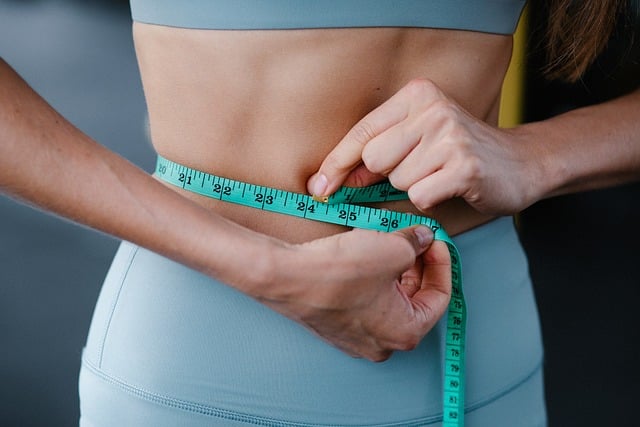Did you know that the state of your gut can influence how easily you lose or gain weight? The connection between gut health and weight loss has become a hot topic in health and wellness circles, with mounting evidence suggesting that your gut microbiome—the ecosystem of bacteria in your digestive system—plays a critical role in weight management. In this article, we’ll explore how gut health affects weight loss, identify gut-friendly foods and drinks, and provide actionable tips for resetting your gut to support weight loss.
Can Gut Health Help You Lose Weight?
Yes, gut health can significantly impact your ability to lose weight. A healthy gut microbiome regulates digestion, nutrient absorption, and metabolism, all of which are critical for maintaining a healthy weight. Conversely, an imbalanced gut microbiome, or dysbiosis, can lead to weight gain by:
- Increasing inflammation, which disrupts metabolism.
- Causing cravings for sugar and unhealthy fats.
- Affecting the hormones that control hunger and satiety.
Which Gut Bacteria Cause Weight Loss?
Certain gut bacteria are associated with weight loss and a leaner body composition. These beneficial bacteria include:
- Bacteroidetes
- Break down complex carbohydrates into short-chain fatty acids (SCFAs) that promote fat burning.
- Akkermansia muciniphila
- Improves gut lining integrity and reduces inflammation, aiding weight management.
- Lactobacillus
- Found in fermented foods, this probiotic helps reduce fat mass and body weight.
- Faecalibacterium prausnitzii
- Produces SCFAs that support gut health and metabolism.
Maintaining a diverse microbiome with these bacteria can improve metabolic health and facilitate weight loss.
How Do You Know If Your Gut is Unhealthy?
An unhealthy gut often manifests in ways that go beyond digestive discomfort. Signs of an imbalanced gut include:
- Frequent bloating, gas, or constipation.
- Food intolerances or sensitivities.
- Persistent fatigue or low energy levels.
- Skin issues like acne or eczema.
- Sugar cravings or difficulty managing appetite.
- Mood swings, anxiety, or depression.
- Difficulty losing weight despite a healthy diet and exercise.
If you experience these symptoms, it might be time to focus on improving your gut health.
Best Foods for Gut Health and Weight Loss
A gut-friendly diet is rich in fiber, probiotics, and prebiotics. Here are some of the best foods to support both gut health and weight loss:
- Fiber-Rich Foods
- Whole grains, oats, quinoa, and brown rice.
- Vegetables like broccoli, spinach, and sweet potatoes.
- Fermented Foods
- Yogurt, kefir, sauerkraut, kimchi, and tempeh provide probiotics.
- Fruits
- Berries, apples, and bananas are excellent prebiotic sources.
- Healthy Fats
- Avocados, nuts, seeds, and olive oil support gut health and reduce inflammation.
- Legumes
- Lentils, chickpeas, and black beans offer fiber and plant-based protein.
Gut Health and Weight Loss Drinks
Certain drinks can nourish your gut microbiome and support weight loss:
- Kombucha
- A fermented tea rich in probiotics that promotes a healthy gut.
- Bone Broth
- Packed with collagen and amino acids that support gut lining health.
- Apple Cider Vinegar (Diluted)
- Helps improve digestion and stabilize blood sugar levels.
- Green Tea
- Rich in antioxidants that reduce inflammation and support metabolism.
- Lemon Water
- Hydrates and stimulates digestion when consumed in the morning.
How Do I Reset My Gut to Lose Weight?
Resetting your gut involves adopting habits that improve microbial diversity and reduce inflammation. Here’s how to reset your gut for weight loss:
- Eliminate Processed Foods
- Avoid sugary, fried, and processed foods that disrupt the microbiome.
- Eat More Fiber
- Incorporate fiber-rich fruits, vegetables, and whole grains into your meals.
- Include Probiotics and Prebiotics
- Consume fermented foods and prebiotic-rich foods like garlic and onions.
- Stay Hydrated
- Proper hydration supports digestion and overall gut function.
- Exercise Regularly
- Physical activity promotes a diverse gut microbiome and aids weight loss.
- Manage Stress
- Practice mindfulness or yoga to reduce stress, which negatively impacts gut health.
Best Supplements for Gut Health and Weight Loss
Supplements can complement a gut-friendly diet. Some of the best options include:
- Probiotic Supplements
- Choose multi-strain probiotics to support gut diversity and balance.
- Prebiotic Fiber
- Supplements like inulin or chicory root feed beneficial bacteria.
- Collagen Peptides
- Help repair the gut lining and reduce inflammation.
- Digestive Enzymes
- Aid in breaking down food for better nutrient absorption.
- Berberine
- Supports a healthy gut microbiome and stabilizes blood sugar levels.
Gut Inflammation and Weight Loss
Inflammation in the gut can be a major roadblock to weight loss. When your gut is inflamed, it disrupts metabolic processes and can lead to:
- Increased fat storage.
- Difficulty absorbing nutrients.
- Altered hunger and satiety hormones.
To reduce gut inflammation:
- Focus on anti-inflammatory foods like leafy greens, fatty fish, and turmeric.
- Avoid inflammatory triggers like refined sugar, alcohol, and processed foods.
- Incorporate probiotics and prebiotics to restore balance.
Conclusion: A Healthy Gut, A Healthier You
The connection between gut health and weight loss is undeniable. By nourishing your gut with the right foods, drinks, and supplements, you can create an environment that supports digestion, reduces inflammation, and enhances metabolic health.
Whether you’re adding more probiotics to your diet, sipping on kombucha, or taking steps to reset your microbiome, prioritizing gut health is a sustainable and effective way to achieve your weight loss goals.
Start your journey to a healthier gut today, and watch how it transforms your overall well-being and weight management!



Pingback: Is Your Gut Healthy? How to Identify, Repair, and Boost Gut Health Naturally - Wellness Readers Digest
Pingback: How to Balance Macronutrients for Weight Loss? - Wellness Readers Digest
Pingback: The Role of Weight Loss Medications: Options, Effectiveness, and Considerations - Wellness Readers Digest